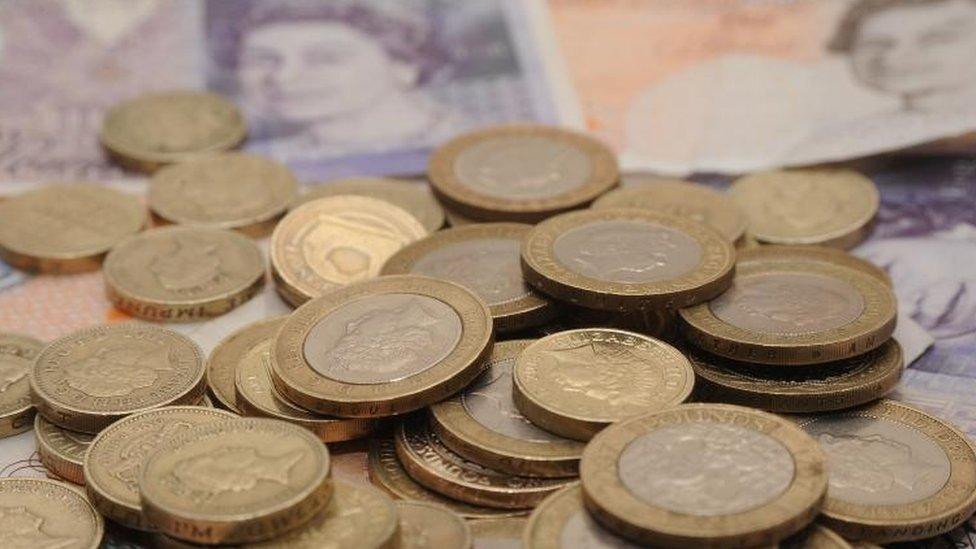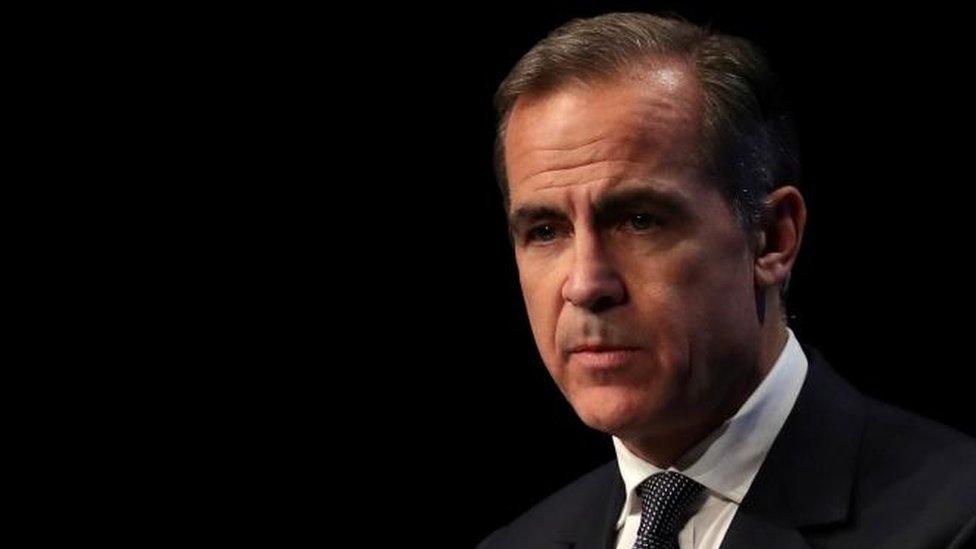End of year debt squeeze revealed
- Published

Lenders reported an increasing number of borrowers faced difficulties repaying loans and overdrafts at the end of the year.
Default rates rose on this unsecured debt in the final three months of the year, the Bank of England's Credit Conditions Survey shows.
Write-offs had been at historically low levels, but demand and the availability of credit have risen.
The Bank's governor has already urged vigilance over the issue.
The total level of unsecured debt has been rising at its fastest pace for 11 years.
"We are going to remain vigilant around the issue, because we have seen this shift," Bank of England governor Mark Carney said in November.
'Hardly a binge'
The TUC and debt charities have warned that if there was a squeeze on employment and spending power in 2017, an increasing number of people could find their debts unmanageable.
Following the Bank's latest figures, Howard Archer, an economist at IHS Global Insight, said: "The Bank of England may well be perturbed to see that there was a loosening of credit standards for unsecured lending other than credit cards.
"It looks inevitable that the fundamentals for consumers will progressively weaken over the coming months."

Mark Carney has said the Bank will be monitoring levels of unsecured loans
However, analysts at Capital Economics said that consumer debt on the whole was not out of control.
"While other forms of borrowing such as mortgage borrowing have been rising too, they have done so considerably more slowly.
"Accordingly, total household borrowing has risen by only 4% over the last year, hardly a borrowing binge and well down on the growth rates of 10% plus seen before the financial crisis."
Capital Economics added that the cost of servicing debts compared to household income was still low and manageable. Interest rates would have to rise significantly to raise this cost to the levels seen in 2008, it said.
The Bank of England's chief economist has also said there is no need to panic.
"Interest rates are still very low, and are expected to remain so for the foreseeable future, so there are fewer concerns on debt servicing than there were in the past," Andy Haldane said recently.
"There are reasons not to be too alarmed about it ticking up, but it is absolutely something we will watch carefully," he added.